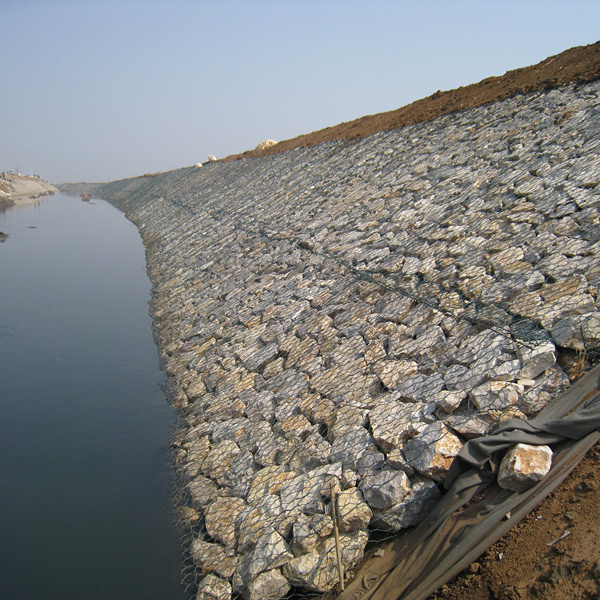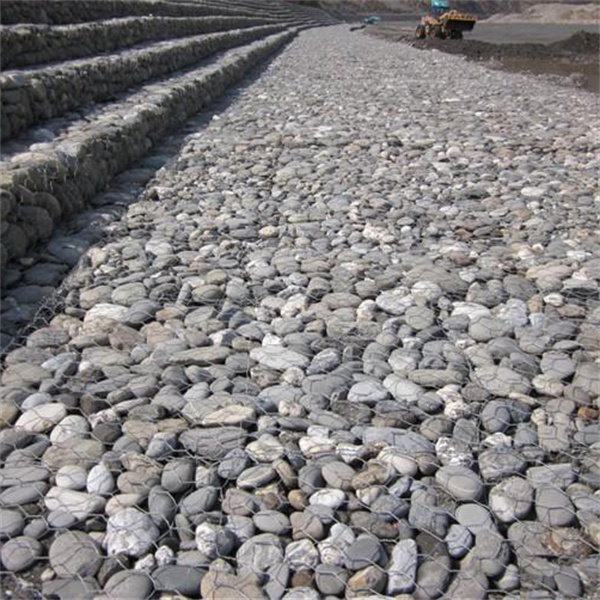Jun . 01, 2025 05:04 Back to list
Stone Cage Nets Suppliers & Factories High-Quality Gabion Solutions
- Core Engineering Principles Behind Stone Cage Nets
- Material & Technical Specifications Breakdown
- Industry Supplier Comparison Analysis
- Factory Production Capabilities Assessment
- Custom Design Implementation Framework
- Documented Case Performance Metrics
- Operational Advantages Summary

(stone cage net)
What Stone Cage Nets Deliver
Stone cage nets, also termed gabion baskets, constitute engineered containment systems constructed from corrosion-resistant wire mesh. These hexagonal-twist configurations withstand tensile forces exceeding 35 kN/m while maintaining permeability essential for hydraulic applications. Primary infrastructure functions include slope stabilization, channel lining, and retaining wall construction where projects demand natural aesthetics combined with structural integrity.
Material Science and Performance Metrics
Superior galvanization protocols distinguish professional-grade units, with certified factories applying zinc-aluminum alloy coatings averaging 280 g/m². This exceeds ASTM A975 standards, delivering corrosion resistance for 50+ years in saline environments. Recent innovations incorporate polyvinyl chloride sheathing (minimum 0.5mm thickness) in coastal installations where chloride exposure exceeds 500 ppm. Tensile strength benchmarks validate through third-party testing:
Wire diameter - Minimum tensile strength
- 2.0mm - 1700 MPa
- 2.7mm - 1550 MPa
- 3.0mm - 1400 MPa
Supplier Capability Comparison
| Supplier Class | Production Scale | Lead Times | Global Certifications | Testing Protocols |
|---|---|---|---|---|
| Tier-1 Manufacturers | 200+ containers/month | 10-14 days | ISO 9001, CE, UKCA | ASTM A975/ASTM E8 |
| Mid-Market Producers | 50-120 containers/month | 21-35 days | ISO 9001 | In-house sampling |
| Specialty Workshops | <30 containers/month | 45+ days | None documented | Visual inspection |
Vertically integrated suppliers demonstrate 27% greater consistency in mesh aperture tolerances (±3%) versus fragmented supply chains.
Factory Production Methodologies
Modern stone cage net
factories employ automated robotic welders achieving precision unattainable through manual fabrication. Production audits reveal automated facilities maintain dimensional variations below 1.5% across batches, critical for rapid site assembly. Quality assurance systems include:
- Raw material spectrometry verification
- Mesh tensile testing every production shift
- Statistical process control charting
Advanced production centers now implement ISO 14001-compliant sustainable practices, reducing material waste below 3.7% while processing recycled steel content upwards of 25%.
Project-Specific Configuration Design
Engineering consultation precedes customized fabrication addressing site-specific geotechnical factors. Mountainous terrain deployments frequently incorporate additional selvedge wiring, increasing load distribution capacity by 30%. Coastal erosion control projects utilize double-twist hexagonal mesh with UV-stabilized polymer jackets. Computational modeling determines optimal configurations including:
- Cell sizing adjustments: 60x80mm to 100x120mm variants
- Reinforcement strategies: diaphragm walls or stepped-back stacking
- Rock fill specifications: gradation analysis matching hydraulic requirements
Documented Infrastructure Deployments
Highway M74 slope stabilization (Scotland) utilized 18,500m³ of stone cage nets to arrest 43° embankment slippage. Post-construction monitoring showed 0.5mm maximum displacement after three flood seasons. Port of Rotterdam sea defense installations withstood North Sea storm surges equivalent to 5.5m wave impacts without structural compromise. Additional verified installations:
- Colorado River bank rehabilitation: 8.2km coverage (no erosion after 2018 floods)
- Hong Kong-Zhuhai-Macau Bridge approach: 15,000 units handling typhoon conditions
Operational Advantages of Modern Stone Cage Systems
Leading stone cage net suppliers provide logistics optimization cutting site preparation timelines by 40%. Standardized containers deliver fully assembled units ready for rock filling, eliminating field fabrication delays. Engineered stone containment nets deliver 19% lower lifetime costs than poured concrete alternatives when factoring in maintenance requirements. Flexible structural adaptation continues driving adoption across civil engineering applications requiring resilience against dynamic environmental forces.

(stone cage net)
FAQS on stone cage net
Q: What is a stone cage net used for?
A: A stone cage net, also known as a gabion, is a wire mesh container filled with stones. It is primarily used for erosion control, slope stabilization, and retaining walls in construction and landscaping projects.
Q: How to choose reliable stone cage net suppliers?
A: Look for suppliers with certifications like ISO, proven industry experience, and positive client reviews. Ensure they offer quality materials (e.g., galvanized steel) and provide customization options to meet project requirements.
Q: What materials are used in stone cage net factories?
A: Reputable factories typically use corrosion-resistant materials such as galvanized steel, PVC-coated wire, or stainless steel. Material selection depends on environmental conditions and project durability needs.
Q: Can stone cage net factories customize sizes?
A: Yes, most factories offer custom dimensions, mesh sizes, and wire diameters. Provide specific project details to ensure the gabions meet exact engineering or design specifications.
Q: What quality checks do stone cage net factories perform?
A: Factories conduct tensile strength tests, coating adhesion checks, and weld integrity inspections. Reputable manufacturers also comply with international standards (e.g., ASTM, EN) to guarantee product reliability.
-
Visualizing Gabion 3D Integration in Urban Landscapes with Rendering
NewsJul.23,2025
-
The Design and Sustainability of Gabion Wire Mesh Panels
NewsJul.23,2025
-
The Acoustic Performance of Gabion Sound Barriers in Urban Environments
NewsJul.23,2025
-
Mastering the Installation of Galvanized Gabion Structures
NewsJul.23,2025
-
Gabion Boxes: Pioneering Sustainable Infrastructure Across the Globe
NewsJul.23,2025
-
Custom PVC Coated Gabion Boxes for Aesthetic Excellence
NewsJul.23,2025
-
Installation Tips for Gabion Wire Baskets in Erosion Control Projects
NewsJul.21,2025






